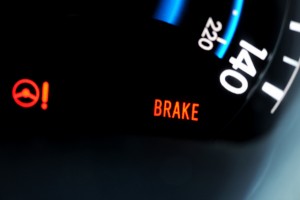 Fix-it tickets, which are tickets for problems like broken or non-functioning brake lights on a vehicle, are one of the most common types of tickets. They tend to be significantly more common than other types of violations because fix-it problems can develop without the driver noticing.
Fix-it tickets, which are tickets for problems like broken or non-functioning brake lights on a vehicle, are one of the most common types of tickets. They tend to be significantly more common than other types of violations because fix-it problems can develop without the driver noticing.
The good news is that fix-it tickets are preventable. Drivers who correct these issues tend to have substantially fewer fix-it offenses while maintaining a higher degree of safety during vehicle operation.
Let’s explore the issue of fix-it tickets, and cover the ultimate one-two fix-it ticket avoidance system.
Why Do Fix-It Tickets Occur
Fix-it tickets, as explained earlier, are tickets issued for violations relating to the mechanical condition of a vehicle. These issues may include safety lights being out, improperly displayed tags, modified exhaust systems and so on.
There are two common qualities with these issues:
- They must be corrected by the driver.
- They are issues that could be prevented by carefully inspecting the vehicle before driving.
What Qualifies as a Fix-It Issue
While the specific criteria of what your local regulations considers as criteria for a “fix-it” issue will differ depending upon where you are, below is a list of some of the things that may be considered a fix-it issue.
These include:
- Window tint that is present on the driver or passenger windows, or tint that is too dark.
- Cracked or damaged windshields that would fail inspection.
- Expired registration, tags or license plates.
- A lack of license plates in the front or the back of the vehicle.
- Inoperative headlights, brake lights, tail lights, turn signals or back-up lights.
- No current year or month tab on the license plates.
- License plates that are partially or completely obstructed, such as by yellow film or a license plate holder.
- A lack of proper license plate illumination.
- Worn tires missing tread or showing visible signs of damage.
- Modified exhaust systems that are too loud or lack the required environmental safeguards.
You may want to keep in mind that these reasons are by no means comprehensive. They are only examples of things that could appear on a fix-it ticket.
How Can you Prevent Fix-It Tickets
There are two major steps in preventing fix-it tickets from occurring. They are:
- Routinely checking for the development of fix-it issues.
- Fixing any fix-it issues that do occur.
Let’s explore how some drivers ensure that these two steps are always taken care of, regardless of how much attention to their local laws that they heed.
Inspecting for Fix-It Issues
One relatively reliable method that some drivers use to inspect for fix-it issues is to utilize a reliable and comprehensive vehicle inspections provider.
- Many fix-it issues align with criteria for passing vehicle inspections, which means that a vehicle will fail if some of these issues are present.
- Adept inspection places will also tend to warn the driver of any non-inspections issues that may exist.
- Another way some drivers avoid fix-it issues is to regularly inspect their car with a list of DMV-required criteria.
These lists can generally be procured online or by visiting your local DMV office. They will list a majority of the issues that a vehicle must address to be both safe and free from fix-it issues.
Fixing the Fix-It Issues
While not all fix-it issues can be avoided initially, repeat issues can be avoided by fixing any fix-it issues that do earn a citation.
- Drivers who fix these issues can sometimes have their tickets dismissed for a nominal fee.
- This makes fix-it tickets significantly cost less, which in turn can make them into little more than mere warnings.
While correcting these issues, a police officer generally needs to inspect the vehicle to ensure they have been corrected. Some drivers have approached officers during this, and they have requested that any further issues be inspected. Some police officers will agree to do so, which has helped drivers fix issues before receiving further citations.
[Image: https://www.flickr.com/photos/larrison/7851263560/]
Scott Desind
Latest posts by Scott Desind (see all)
- How to Request the County Seat and Fight Your California Traffic Ticket - May 21, 2023
- Don’t Even Touch That Cell Phone - July 13, 2022
- Innocent Until Proven Guilty - March 2, 2020

